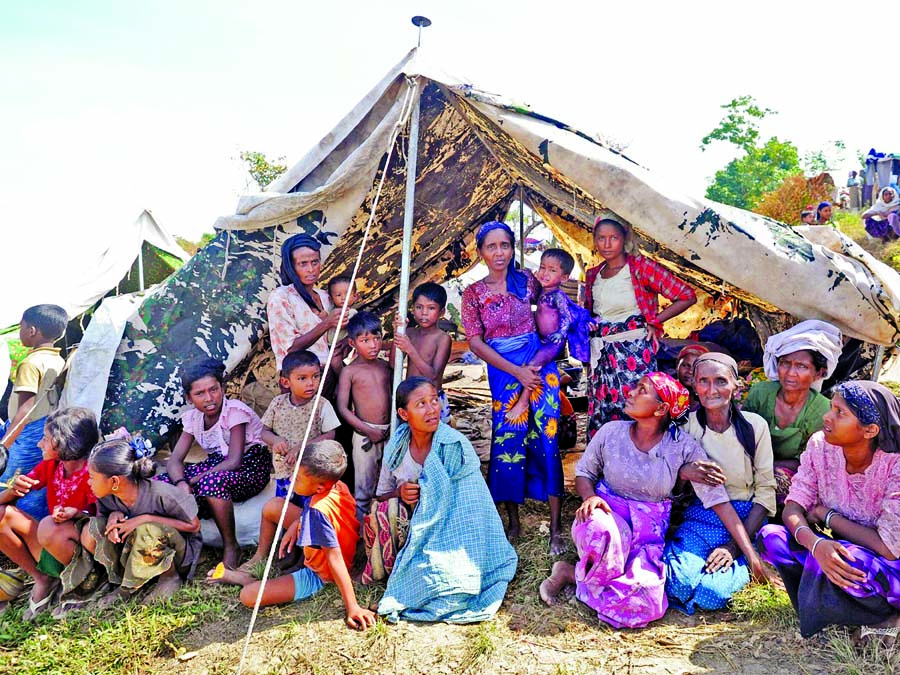
Around 21,000 Rohingyas have fled to Bangladesh in recent weeks to escape from an attempted genocide by Myanmar army, an official of the International Organisation for Migration (IOM) said on Tuesday.
Bangladesh has stepped up patrols on the border trying to stem the tide of refugees who have been fleeing a bloody crackdown by Myanmar’s army in the western state of Rakhine since early October.
But Sanjukta Sahany, head of the IOM office in Bangladesh’s southeastern district of Cox’s Bazar bordering Rakhine said an estimated 21,000 Rohingya have arrived in Cox’s Bazar district between October 9 and December 2.
“It is based on the figures collected by UN agencies and international non-governmental organizations,” she told AFP.
Sahany also said the members of the stateless ethnic minority had crossed over in the past two months. “The vast majority of those who arrived took refuge in makeshift settlements,” she added.
Those interviewed by AFP inside Bangladesh had horrifying stories of gang rape, torture and murder at the hands of Myanmar’s security forces.
Analysis of satellite images by Human Rights Watch found hundreds of buildings in Rohingya villages have been razed.
Rohingya is a Muslim minority community in Myanmar.

Myanmar authorities have denied allegations of abuse but have banned foreign journalists and independent investigators from accessing the area.
The government of Myanmar also criticised media reports of violence against the Rohingya, and lodged a formal protest against a UN official in Bangladesh who said the state was carrying out “ethnic cleansing”. Myanmar’s Nobel peace laureate and de facto leader Aung San Suu Kyi has also faced a growing international backlash for the army crackdown in the country. At the weekend, the Malaysian Prime Minister Najib Razak led a protest rally against what he called the “genocide” of the Rohingya minority, saying “enough is enough”. Last week, Suu Kyi vowed to work for “peace and national reconciliation”, saying her country faced many challenges, but did not mention the violence in Rakhine state.
Bangladesh has reinforced its border posts and deployed coastguard ships to try to prevent a fresh influx of refugees. In the past two months, Bangladeshi border guards have prevented hundreds of boats packed with Rohingya women and children from entering the country.
The Bangladesh government has been under pressure from Muslim groups and the opposition to open its border to the fleeing Rohingya. On Tuesday, police stopped thousands of Muslims from marching to the Myanmar embassy in Dhaka to protest at the ongoing “genocide” of Rohingya.
Shiblee Noman, an assistant commissioner of Dhaka police, told AFP about 10,000 Muslims joined the march, which was halted at central Dhaka’s Nightingale Crossing.
“They were peaceful,” he said.
More than 230,000 Rohingya are already living in Bangladesh, most of them illegally, although around 32,000 are formally registered as refugees.

